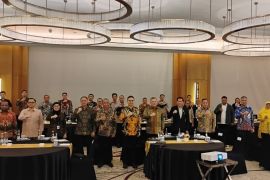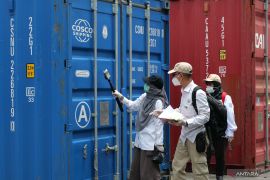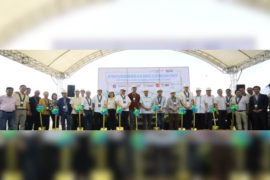WASHINGTON, March 30, 2015 (Antara/PRNewswire) -- The Global Leaders Council for Reproductive Health and the Aspen Institute announced today the winners of the 2015 Resolve Award, which recognizes countries that are making landmark progress towards the goal of universal access to reproductive health. This year's awards are focused on approaches that are anchored in rights-based principles and promote equitable access. Senegal and the Philippines are being honored for exceptional achievements in service delivery and policy development, with special mention to Uruguay for its pioneering approach to risk reduction.
Logo - http://photos.prnewswire.com/prnh/20150329/195106LOGO
http://reproductivehealth.aspeninstitute.org/
Delivering on the promise of universal access to reproductive health is one of the key human rights challenges facing governments today, and is central to developing a just, equitable, and sustainable world.
The Honorable Joy Phumaphi, Chair of the Aspen Institute's Global Leaders Council for Reproductive Health, will present the awards to representatives of each country on May 21, 2015, at a ceremony coinciding with the World Health Assembly in Geneva, Switzerland.
Winning Countries
Senegal is the winner of the 2015 Resolve Award for Service Delivery. The country is revolutionizing the availability and supply of contraceptives with its Informed Push Model of distribution. Informed Push uses techniques borrowed from the commercial sector to eliminate inventory stockouts and ensure that women have access to a consistent, reliable supply of family planning products. Development of the system was led by the Ministry of Health, which collaborated with a range of public and private partners to build a robust, sustainable program. The success in Senegal has been dramatic—with stockout frequencies reduced from 80 percent to less than 10 percent—and is already serving as a model for other countries in the region.
The 2015 Resolve Award for Policy Development recognizes the Philippines for its game-changing transformations in the political and regulatory environment for reproductive health. The country's newly enacted reproductive health law is the result of a 13-year campaign to establish a national reproductive rights and health framework, despite a difficult political climate. The successful culmination of this effort, which was supported by a broad consortium of civil society advocates and government leaders, heralds a new era in health and rights for all Filipinos.
Uruguay is being honored with a Special Mention for its innovative risk reduction approach to unsafe abortion. The Uruguayan model is designed to maximize women's healthcare options even in a restrictive legal environment, with a focus on treating abortion and unwanted pregnancy as medical issues. As a result, maternal deaths from unsafe abortion have been virtually eliminated in Uruguay. This risk reduction model has been replicated in other countries across Latin America, and is now being implemented in Africa and the Arab world.
About the Awards
The Resolve Award was launched in 2011 by the Global Leaders Council for Reproductive Health, in partnership with Aspen Global Health and Development, the World Health Organization Department of Reproductive Health and Research, and the U.S. Agency for International Development, to recognize country-led innovations that result in increased access to family planning and reproductive health. Past recipients include Ethiopia, Malawi, Nepal, and Yemen (2012); the Gambia, Kenya, Sierra Leone, and Zambia (2013); and Afghanistan, Cambodia, Peru, and Tanzania (2014).
The awards ceremony will be broadcast live on May 21, 2015. Additional information will follow. Join the conversation on Twitter @GLCRHresolve and #Resolve.
The Global Leaders Council for Reproductive Health, established by The Aspen Institute in 2010, is composed of sixteen sitting and former heads of state, high-level policymakers and other leaders who build political leadership for increased financial and technical support for reproductive health. The Council works to revitalize political commitments to reproductive health by increasing awareness of reproductive health issues, supporting the effective use of donor resources, and championing policies dedicated to achieving universal access to reproductive health. For more information please visit: http://reproductivehealth.aspeninstitute.org/
Aspen Global Health and Development, one of the largest policy programs at the Aspen Institute, is a force for fresh thinking, unlikely collaborations, and nimble action within the global health and development field. Today, GHD's small, dynamic team works on a collection of issue-specific initiatives – all aimed at catalyzing policy work that better connects champions at the highest levels, development practitioners in the field, and the poorest and most vulnerable on the ground. For more information please visit: http://www.aspeninstitute.org/policy-work/global-health-development
Reporter: PR Wire
Editor: PR Wire
Copyright © ANTARA 2015










